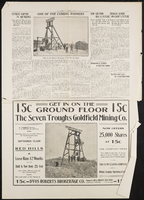Search the Special Collections and Archives Portal
Search Results
Carolyn Freeman oral history interview
Identifier
Abstract
Oral history interview with Carolyn Freeman conducted on January 30, 2006 for the Boyer Early Las Vegas Oral History Project. Freeman begins by discussing her upbringing, her father, who was the president of the Japanese American Citizens League, and her early interest in dancing. She also details her experiences as a Japanese American during World War II and being relocated by the federal government. Freeman then describes how she began her career as a dancer after getting a role in a Broadway play in New York City, New York, and her later experiences dancing in productions in Reno, Nevada and San Francisco, California during the 1950s and 1960s. Lastly, Freeman discusses the differences between living in Las Vegas, Nevada compared to California and being offered the chance to dance in a Frank Sinatra show by himself and Sammy Davis Jr.
Archival Collection
Phillip L. Cook oral history interview
Identifier
Abstract
Oral history interview with Phillip L. Cook conducted by Richard Strahan on March 3, 1977 for the Ralph Roske Oral History Project on Early Las Vegas. Cook first talks about his parents' move to Nevada and discusses how the school system has changed over time. He then describes the first businesses that opened up in the Downtown and Strip areas of Las Vegas, Nevada before discussing prostitution, Block 16, and recreational activities available to youth. Cook also talks about the first television sets and telephone systems made available, and he moves on to talk about the prices of things such as movies and haircuts when he was younger. The interview then moves to discussions on the Old Ranch, racial discrimination, school integration, the crime rate, and the school system in Las Vegas.
Archival Collection
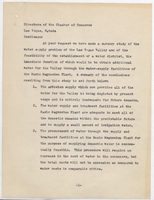
Letter from Alfred J. Ryan to the Directors of the Las Vegas Chamber of Commerce, circa 1950
Date
Archival Collection
Description
Discussion of the feasibility of bringing water from Lake Mead to Las Vegas. Pittman is an older name for the city of Henderson. Whitney is an older name for East Las Vegas.
Text
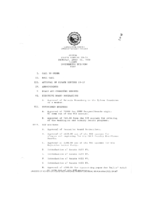
Meeting minutes for Consolidated Student Senate University of Nevada, Las Vegas, April 13, 1989
Date
Archival Collection
Description
Text
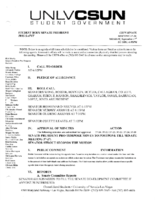
Meeting minutes for Consolidated Student Senate, University of Nevada, Las Vegas, September 17, 2007
Date
Archival Collection
Description
Text
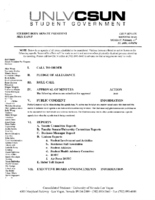
Meeting minutes for Consolidated Student Senate, University of Nevada, Las Vegas, February 11, 2008
Date
Archival Collection
Description
Text
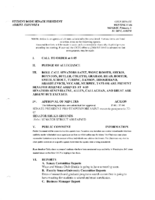
Meeting minutes for Consolidated Student Senate, University of Nevada, Las Vegas, February 05, 2007
Date
Archival Collection
Description
Text
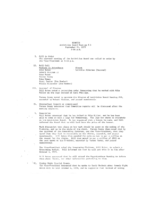
Meeting minutes for Consolidated Student Activities Board, University of Nevada, Las Vegas, September 25, 1978
Date
Archival Collection
Description
Text
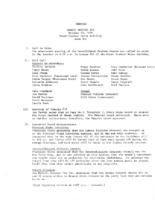
Meeting minutes for Consolidated Student Senate, University of Nevada, Las Vegas, October 10, 1978
Date
Archival Collection
Description
Text

